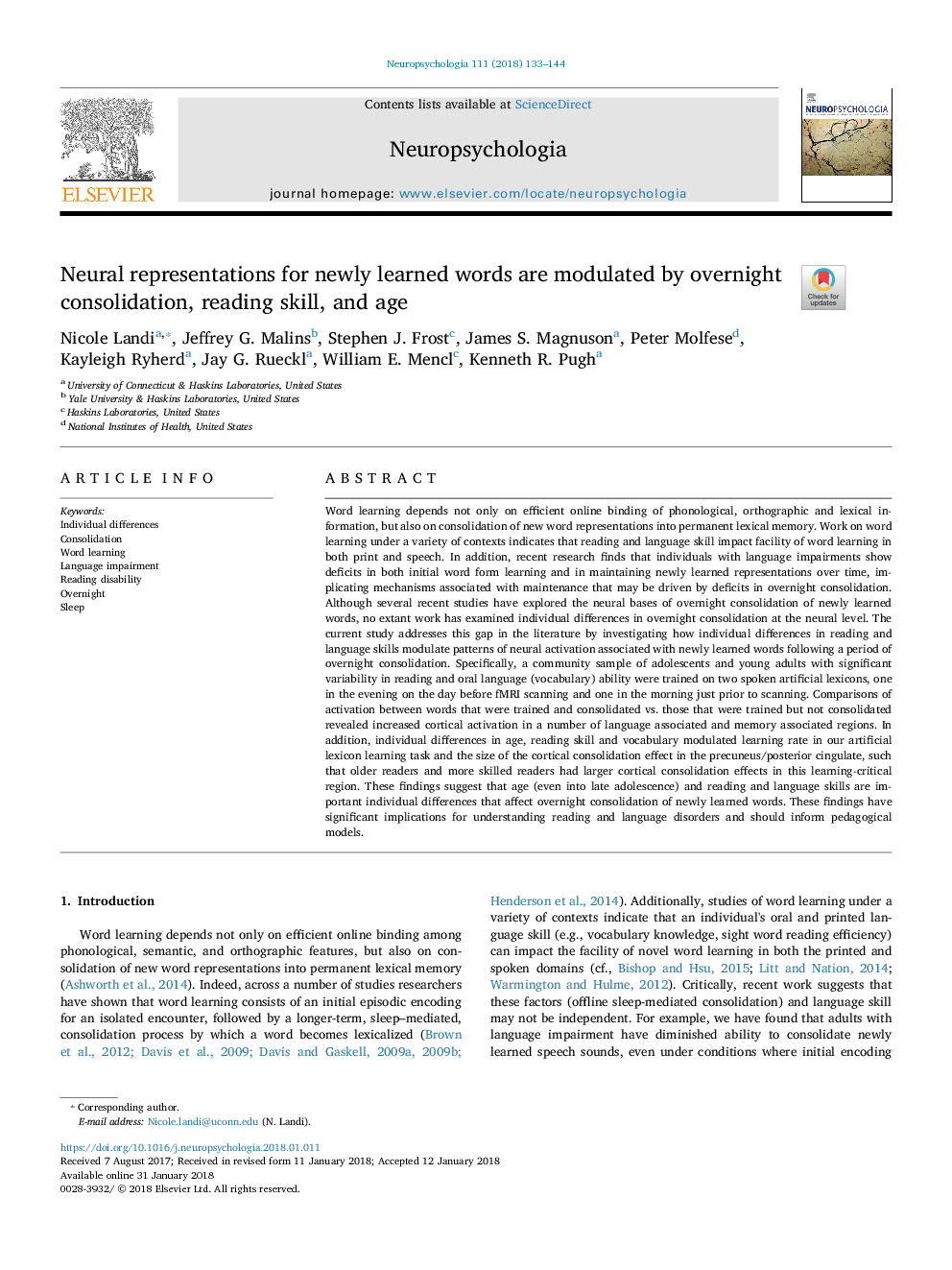ترجمه فارسی عنوان مقاله
تظاهرات عصبی برای کلمات تازه یاد گرفته شده توسط یکپارچه سازی یک شبه، مهارت خواندن و سن است
عنوان انگلیسی
Neural representations for newly learned words are modulated by overnight consolidation, reading skill, and age
| کد مقاله | سال انتشار | تعداد صفحات مقاله انگلیسی |
|---|---|---|
| 115176 | 2018 | 12 صفحه PDF |
منبع

Publisher : Elsevier - Science Direct (الزویر - ساینس دایرکت)
Journal : Neuropsychologia, Volume 111, March 2018, Pages 133-144
ترجمه کلمات کلیدی
تفاوتهای فردی، تثبیت، یادگیری کلمه، اختلال زبان، معلولیت خواندن، یک شب، خواب
کلمات کلیدی انگلیسی
Individual differences; Consolidation; Word learning; Language impairment; Reading disability; Overnight; Sleep;

